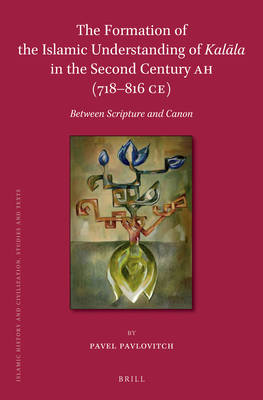
- Afhalen na 1 uur in een winkel met voorraad
- Gratis thuislevering in België vanaf € 30
- Ruim aanbod met 7 miljoen producten
- Afhalen na 1 uur in een winkel met voorraad
- Gratis thuislevering in België vanaf € 30
- Ruim aanbod met 7 miljoen producten
Zoeken
The Formation of the Islamic Understanding of Kalāla in the Second Century Ah (718-816 Ce)
Between Scripture and Canon
Pavel Pavlovitch
€ 386,45
+ 772 punten
Omschrijving
In The Formation of the Islamic Understanding of kalāla in the Second Century AH (718-816 CE), Pavel Pavlovitch studies traditions (ḥadīth) about the lexical and terminological meaning of the Quranic vocable kalāla. Attempts to understand kalāla began with acknowledging its unintelligibility but ultimately brought into existence a capacious body of interpretative ḥadīth, associated with early Islamic authorities. The analysis of these traditions affords insights into the changing conception of scripture during the first two Islamic centuries, the early history of Islamic exegesis and jurisprudence, and varying scholarly attitudes towards constituent sources of Islamic law. The book highlights the importance of coherent methodology of dating and reconstructing Muslim traditions according to their lines of transmission (isnāds) and their narrative content (matns).
Specificaties
Betrokkenen
- Auteur(s):
- Uitgeverij:
Inhoud
- Aantal bladzijden:
- 596
- Taal:
- Engels
- Reeks:
- Reeksnummer:
- nr. 126
Eigenschappen
- Productcode (EAN):
- 9789004306066
- Verschijningsdatum:
- 13/11/2015
- Uitvoering:
- Hardcover
- Formaat:
- Genaaid
- Afmetingen:
- 157 mm x 236 mm
- Gewicht:
- 938 g

Alleen bij Standaard Boekhandel
+ 772 punten op je klantenkaart van Standaard Boekhandel
Beoordelingen
We publiceren alleen reviews die voldoen aan de voorwaarden voor reviews. Bekijk onze voorwaarden voor reviews.








